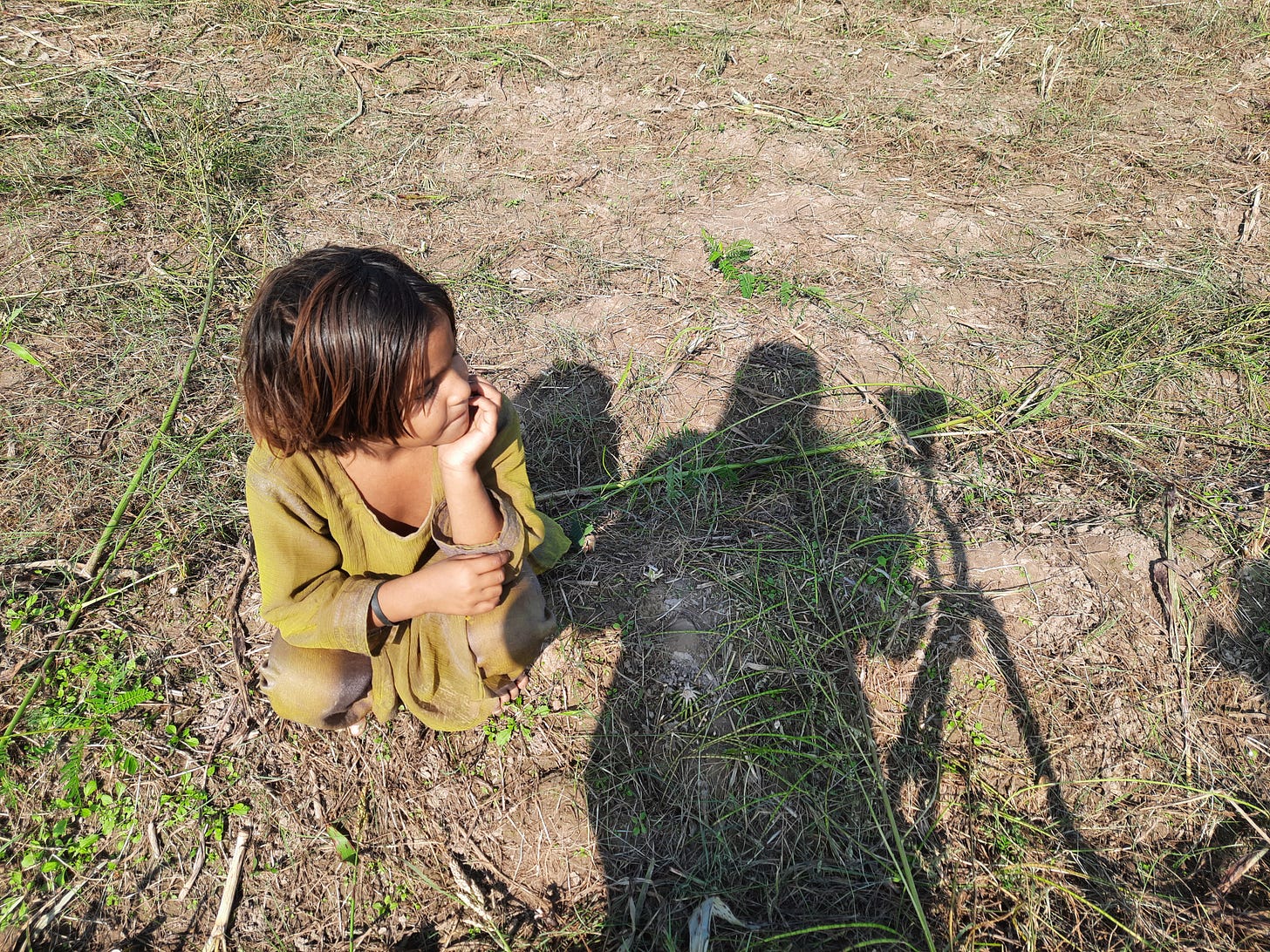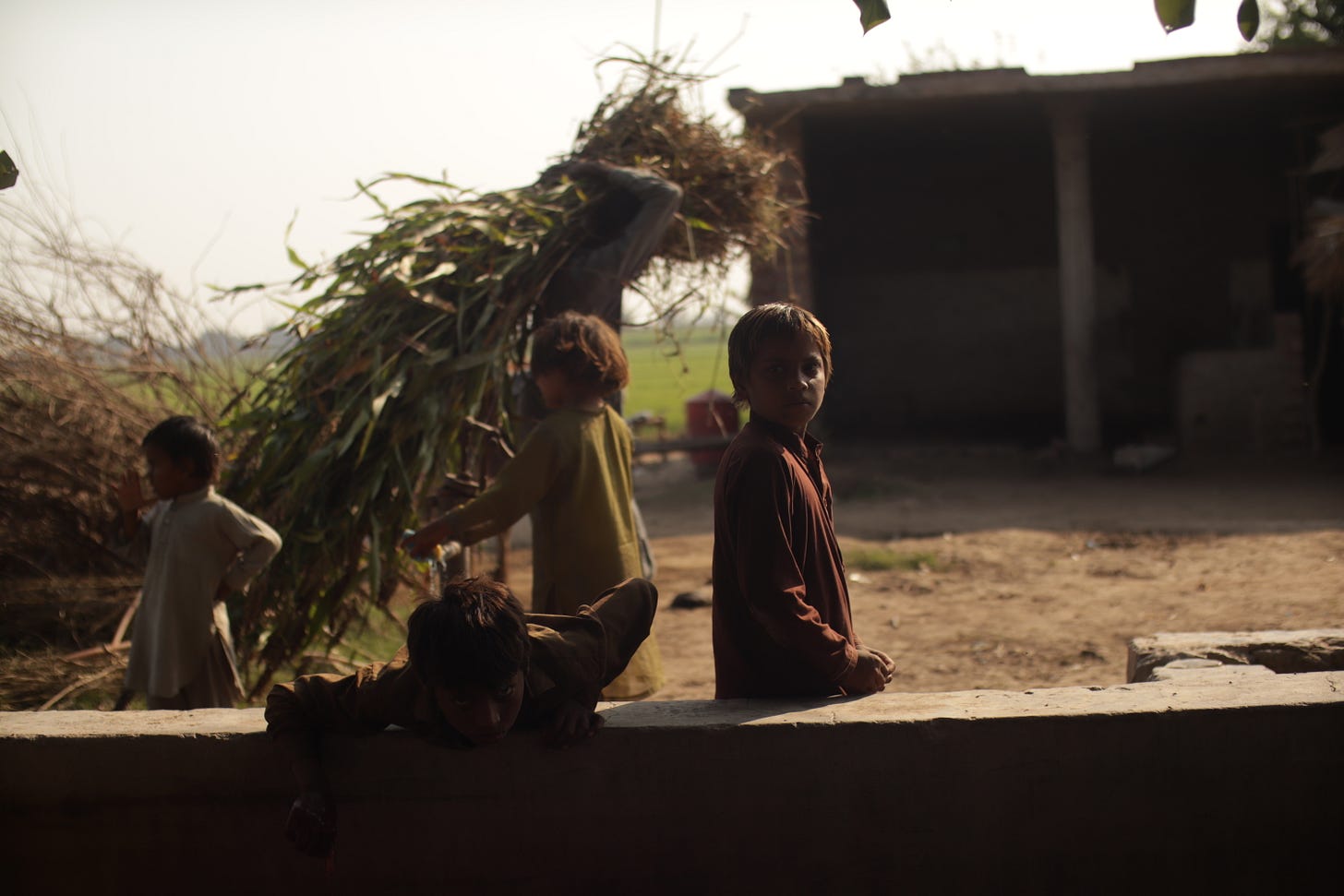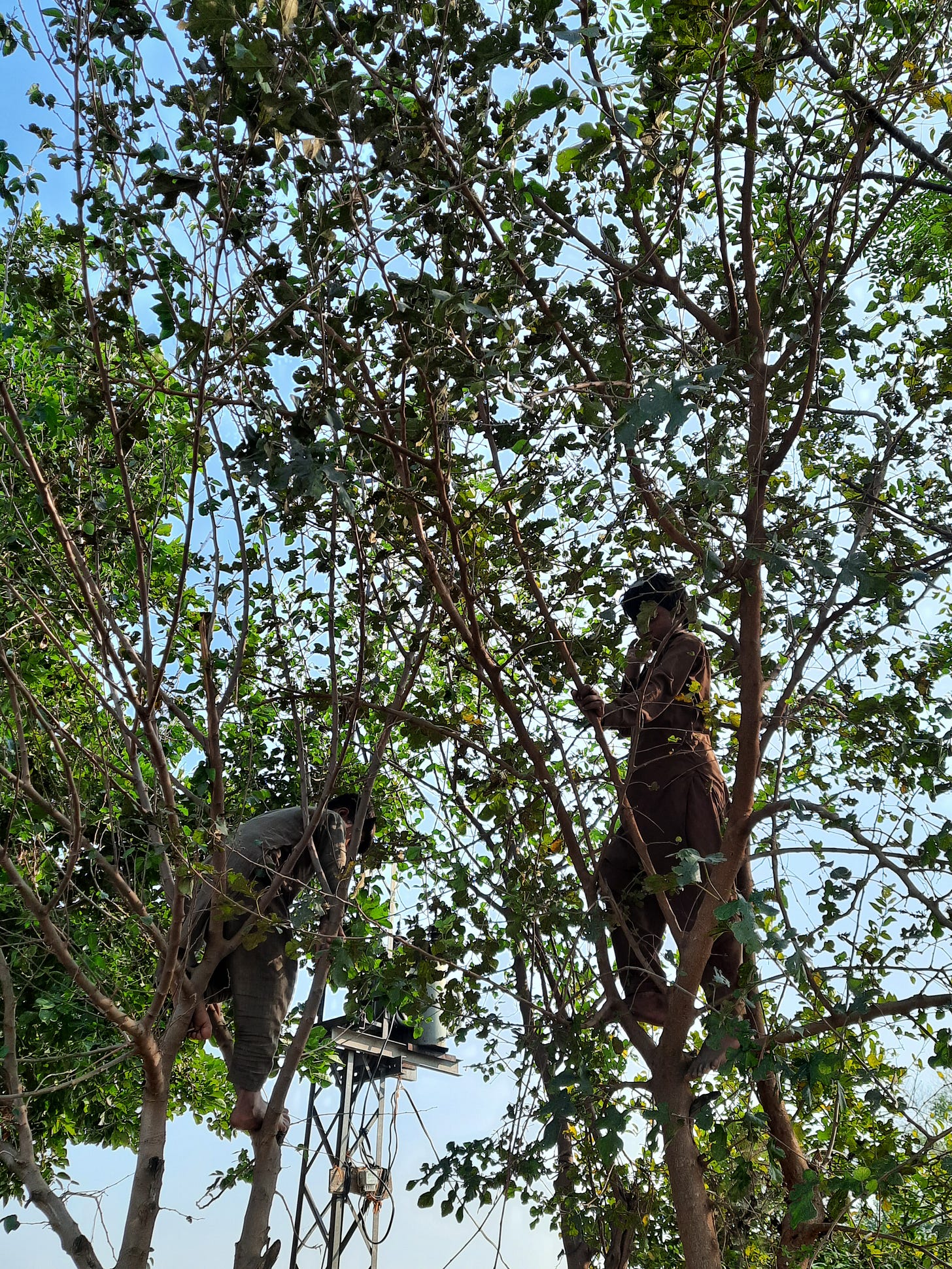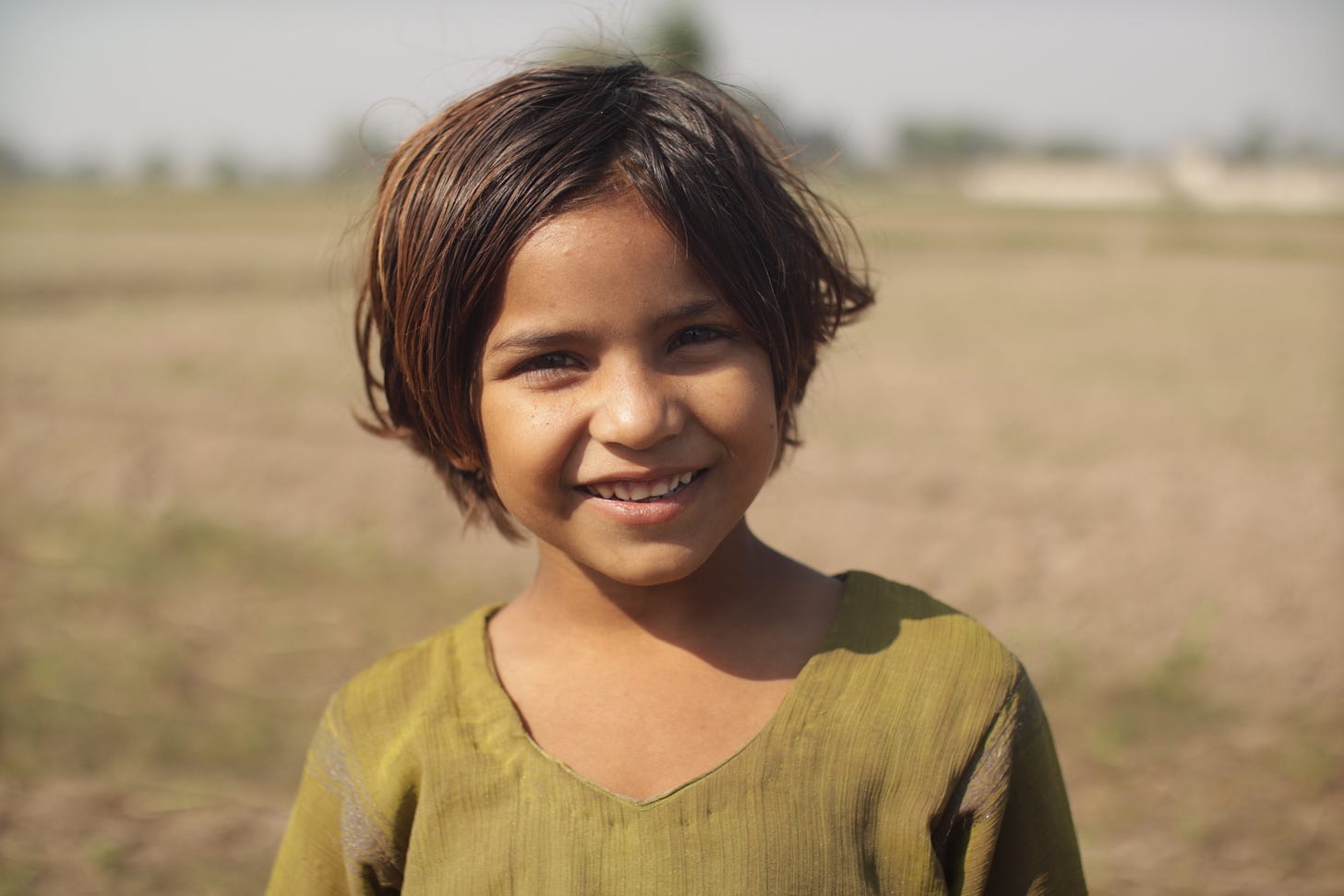The area I live in is a relatively old neighborhood of the city - meaning there are big old houses, many abandoned, but more importantly there are old trees. In recent years, there have been increasing encroachments on the sanctity of the area with creeping ‘developments’.
I traveled to Lahore very recently for 10 days to help film a documentary on air pollution, for which Lahore is well known. It’s said to be the world’s no. 1 most polluted city, according to a number of sources like this one. Other sources place it at number 2 or 3, but the point is is that it’s up there.
The first thing I noticed about Lahore, although it wasn’t my first time visiting, was the trees. They stood out to me in such stark contrast to the bareness and brownness of most of Karachi. Perhaps it was also the winter light filtering through them that helped with the image, trees taller than I could ever imagine in the city by the sea. One would imagine living there would be nice, if not for the fact that living in Lahore is said to cut about 7 years off your lifespan. One would also imagine the trees might help with the air pollution situation, but not quite so.
That being said, trees do so much. They shade a street, they’re natural coolers, green calms the nervous system, they are the habitats that make bird watching possible.
When I came back home, as we drove down the familiar street leading out of our neighborhood, I noticed a certain emptiness in my peripheral vision. The trees were gone. The house they were planted in is still there, looking as abandoned as ever, but now there’s no shade on the street and it feels harsh and unprotected - which is to say I feel unprotected, in however minuscule a way.
I’d been waiting for this anxiously; we’ve known that greedy developers have had their eyes on the peaceful prime real estate that is this enclave, and it was only a matter of time before they bulldozed their way in. A few houses down, another abandoned old home filled with old indigenous trees has been demolished to make room for a swanky upscale high-rise apartment building. It just doesn’t feel the same when I drive past so I tend to avert my gaze.
They say that Karachi has a housing and overpopulation problem, which is to say there are too many poor people, but any ‘available’ land seems to only be used for real estate projects that serve the wealthy. I wonder if people will even live in the new complex, or if this is going to be yet another project for already-rich investors to make more money.
The Palestinian cause has fully opened my already three quarters-open eyes to the injustices of the world. I’ve been observing what is playing out globally and then somewhat automatically applying my understanding of it to the microcosm in which I exist. I am viewing nearly all relationships in terms of oppressor vs oppressed, and I find that it works in most cases; big money vs the poor, big money vs the trees, elite DHA family vs domestic staff, man vs woman, human vs animal, and on it goes.
Last week we visited a farm to film on the outskirts of Lahore. As I walked around with my camera and tripod I was followed, respectfully escorted rather, by a little girl named Rabiya who lived there, while the older members of her family worked on the farm. I observed the children’s interactions and paid attention to their strange calm wildness. They ran around playing, sat down contemplatively while gnawing on a stalk they pulled from the ground, climbed climbable trees, pulled water from the tube well for an elder of the family to wash up.
Later the kids called me in towards their house as their mother made parathas on a makeshift stove. They insisted I eat and the little boy threatened that if I don’t eat, he won’t eat. The little girl came closer to me and gently played with the turquoise teardrop-shaped earring dangling from my ear. The little boy played with the beaded bracelet on my wrist and said something in Punjabi about giving it to him. He had such a demanding manner for a 3 or 4 year old that everything he said prompted giggles. I was aware of the part of me that wanted to give my things to them, but also felt that childish possessiveness of liking my things too much to part with them, so I didn’t. The mother asked for my number and normally I would have told them to give me theirs but they didn’t know their own number so I hesitantly wrote mine down. And so I ate the paratha she made me and took selfies with the kids and accepted her offering of a huge plastic jar filled to the brim with laal mirch. I insisted that it was too much and she insisted it was a gift.
Later that night I had a hard time sleeping because I regretted giving them my contact, and was having half-awake dreams of being spammed, because despite their generosity and kindness, a consciously dormant part of me was very aware of their poorness, their uneducated-ness, their ‘wildness’, and aware of having transgressed a certain boundary and tossing and turning with the discomfort of knowing this, of knowing that there’s a part of me that must feel safe in making them and those like them Separate and Removed from people like me.
When I came back home from the airport, I looked in the mirror to find that one of my earrings was missing. The same one I was too attached to to give the little girl. Of course I saw this as a lesson in the form of a minor loss. Because how am I doing without it? Just fine, a little sad, but absolutely fine.
I come back to the Palestinians who are losing everything, and to my budding awareness of the roots of destruction. What is disguised as a religious issue is really just pure greed, the pursuit of which is made possible by otherizing certain groups of people. When I think about greed I think about absolutely any object of desire, anything that is worldly. In the face of such immense loss, what do we have left? What holds us together and what keeps us going?
When driving around the city now, I can’t help but feel deflated at the lack of green space, and the stronghold that big power has on how regular people experience their everyday, a deep sense that they don’t care about us. What can possibly keep us going when we know that?
The little that I can do is continue to observe the world as it is, and sometimes I get to see some good things. Like the boy who sells ballpoint pens at the signal I stop at regularly, sitting on the sidewalk with a smile on his face eating something given to him by the policeman who stands waving traffic at the same spot.
I think it comes down to giving and receiving, as opposed to taking, and taking, and taking. To give and not in the sense of charity - for giving to be part of your very being. You can be Bill Gates and give heaps to charity and I wouldn’t call you a giver. I read something recently about how if you want to know the truth, look at who is nurturing the olive trees and who is destroying them, and so often this can be enough of a compass.








Seeing, feeling and witnessing all that's happening on both macro and microcosms is taking a toll on us, I can feel hopelessness arise in me 48 days on. We're all being collectively betrayed on some level or other, and it's unjust and unfair and downright catastrophic. It can't go on this way, something's gotta give.
not only if Bill Gates not a giver, but:
https://www.thenation.com/article/society/bill-gates-philanthropy-misanthropy/tnamp/
https://www.thenation.com/article/society/bill-gates-foundation-philanthropy/tnamp/